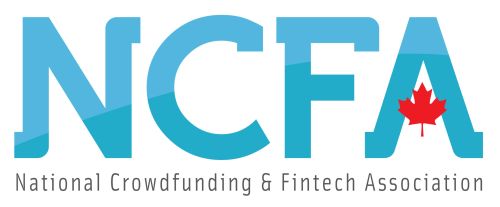Economy | Jun 12, 2024

 Image: Freepik/rawpixel.com
Image: Freepik/rawpixel.comCanada’s new capital gains tax hike passes despite opposition, raising concerns about economic impacts.
The capital gains tax rate in Canada was recently passed (vote 208-yes to 118-no) to increase significantly, from 50% to 66.67%, which comes into effect Jun 25, 2024. The Liberal government is implementing this move as part of its attempts to boost income and enhance the neutrality of the tax system. But this approach has sparked a contentious discussion among lawmakers, economists, and business executives.
Economic Impact and Criticisms
The higher capital gains tax, according to economists, may discourage investment even more, accelerating Canada’s declining productivity and competitiveness. Higher divestment taxes are feared to damage Canada’s competitive advantage by incentivizing entrepreneurs to found their startups in countries with more innovation-friendly tax laws.
See: Canada’s Capital Gains Tax Changes Sparks Economic Debate
Beata Caranci, Chief Economist at TD Bank said:
“Limiting the prosperity of Canadian enterprises through additional levies will restrict prospects and job creation.”
The Canadian government has allocated a portion of its increased expenditure to programs that support economic growth, like expenditures in technology research and development, in an effort to lessen the impact of the new taxes. Critics counter that these steps won’t be enough and that the increased taxes will hinder corporate growth and innovation.
Public and Political Response
Critics of the tax adjustments have gone so far as to compare them to a Ponzi scheme, implying that they are unduly dependent on investors in the future to cover their current commitments. This point of view highlights concerns that long-term economic stability could be sacrificed in order to achieve short-term income gains.
The capital gains proposal of the Liberal government is strongly opposed by the Conservative Party. The leader of the Conservative Party, Pierre Poilievre, stressed that small businesses and middle-class Canadians will suffer as a result of this tax rise and other economic measures. .
IMF Recommendations and New Streaming Tax
Although the IMF agrees with the tax increase, it maintains that Canada’s budgetary situation cannot be stabilized without additional extensive fiscal measures. In order to effectively control market expectations, the IMF further advises the Bank of Canada to enhance its monetary policy communication.
See: CRA Pursues $54 million in Unpaid Crypto Taxes
Apart from the capital gains tax, there is now an additional tax on streaming services (taxes, taxes, taxes). By levelling the playing field between internet streaming services and traditional broadcasters, this tax seeks to ensure that each party makes an equitable contribution to the Canadian economy. This streaming tax mandates players to hand over 5% of their total revenue annually, which is anticipated to bring in a sizable amount of extra money for the government. This approach will surely lead to the equivalent increase to consumers bills as big tech streamers will simply pass the new levy onto consumers which is why some are advocating for the new tax to be included directly on bills so subscribers can understand how much additional tax it’s costing them.
Conclusion
With Canada continuing to raise capital gains taxes, there will probably be more discussion about the effects on the country’s economy. The government must strike a compromise between policies that promote productivity and long-term economic growth and the need for more money.

 The National Crowdfunding & Fintech Association (NCFA Canada) is a financial innovation ecosystem that provides education, market intelligence, industry stewardship, networking and funding opportunities and services to thousands of community members and works closely with industry, government, partners and affiliates to create a vibrant and innovative fintech and funding industry in Canada. Decentralized and distributed, NCFA is engaged with global stakeholders and helps incubate projects and investment in fintech, alternative finance, crowdfunding, peer-to-peer finance, payments, digital assets and tokens, artificial intelligence, blockchain, cryptocurrency, regtech, and insurtech sectors. Join Canada’s Fintech & Funding Community today FREE! Or become a contributing member and get perks. For more information, please visit: www.ncfacanada.org
The National Crowdfunding & Fintech Association (NCFA Canada) is a financial innovation ecosystem that provides education, market intelligence, industry stewardship, networking and funding opportunities and services to thousands of community members and works closely with industry, government, partners and affiliates to create a vibrant and innovative fintech and funding industry in Canada. Decentralized and distributed, NCFA is engaged with global stakeholders and helps incubate projects and investment in fintech, alternative finance, crowdfunding, peer-to-peer finance, payments, digital assets and tokens, artificial intelligence, blockchain, cryptocurrency, regtech, and insurtech sectors. Join Canada’s Fintech & Funding Community today FREE! Or become a contributing member and get perks. For more information, please visit: www.ncfacanada.org
Related Posts
- SEO Powered Content & PR Distribution. Get Amplified Today.
- PlatoData.Network Vertical Generative Ai. Empower Yourself. Access Here.
- PlatoAiStream. Web3 Intelligence. Knowledge Amplified. Access Here.
- PlatoESG. Carbon, CleanTech, Energy, Environment, Solar, Waste Management. Access Here.
- PlatoHealth. Biotech and Clinical Trials Intelligence. Access Here.
- Source: https://ncfacanada.org/canadas-capital-gains-tax-hike-moves-forward/



